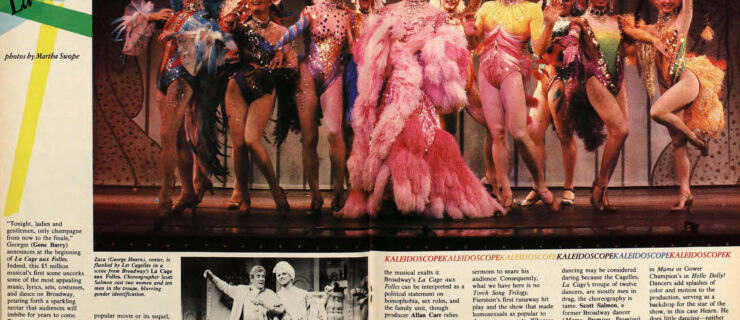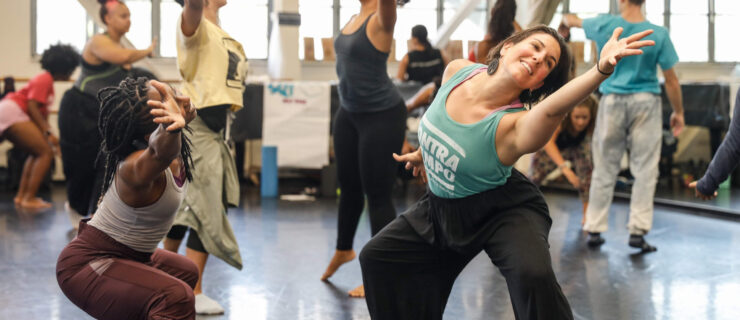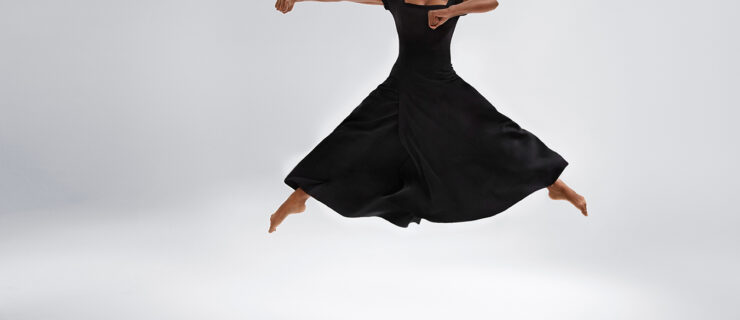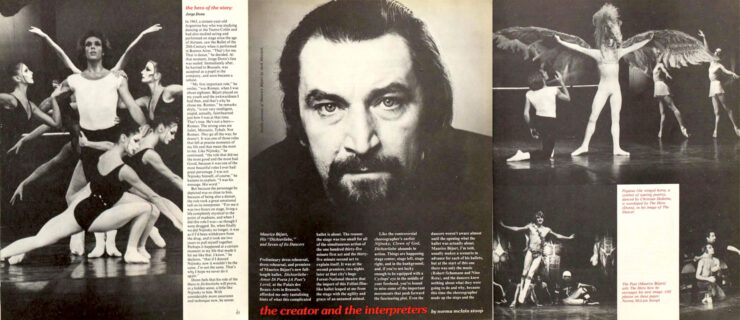Dance Matters: Vladimir Vasiliev
At one point in Vladimir Vasiliev’s pièce d’occasion last March, Vasiliev peered out past the audience with a searching look, as if to ask, “Where have the years gone?” Or perhaps he was saying, “Where can I find my ideal?” This poignant piece, a duet he made for himself and then-18-year-old Daria Khokhlova, concluded an evening of tributes to the Russian superstar at New York City Center, organized by Youth America Grand Prix.
From 1959 to the 1980s, Vasiliev was a hero of Soviet ballet, celebrated for his thrilling leaps, multiple pirouettes, and exhilarating bravura. He created astounding new steps, like a tour en l’air in attitude, setting a new standard for male dancers. Nureyev or Baryshnikov were more famous in the U.S., but he was considered their equal elsewhere and was often called the “god of dance.”
“He was one of the very few people who got me truly inspired,” says Mikhail Baryshnikov. “His physical presence and true Russian lyricism were contagious. His art, and later he as a human being, made a big dent in my heart.”
Vladimir Vasiliev graduated from the Bolshoi School in 1958 and immediately joined the company as a soloist. The great Galina Ulanova chose him as her partner in one of her last performances of Chopiniana. By 1959, when the Bolshoi made its first visit to New York, he was a principal.
His most famous role was Spartacus in Grigorovich’s ballet of the same name. Looking back, Vasiliev said (in an e-mail interview translated by Marina Panfilovich), “His choice of me for the title role was unexpected. In previous versions, Spartacus was a tall man to personify strength and superiority. I was never that tall in life. But stage is a strange thing: It can make tall men seem small and vice versa. When I danced Spartacus abroad, sometimes the audience would not believe it was me when meeting the artists at the stage door, as they expected the big man I was onstage.”
In 1995 Vasiliev was appointed the general and artistic director of the entire Bolshoi Theatre. “Though our budgets were ridiculous in comparison with Metropolitan Opera or Covent Garden, we made new productions,” he said. “The company was gradually renewed, it became young and beautiful.” But five years later he was unceremoniously removed from this post through a decree signed by President Putin.
Nina Ananiashvili remembers Vasiliev telling her the news backstage during a performance: “I was shocked! The Bolshoi under Vasiliev was so successful. We had wonderful tour in the United States. Before him, it was just disaster. With him, we do everything good, and suddenly they want to change it.”
Vasiliev turned 70 this year, and he’s been feted in Brazil, where he founded an outpost of the Bolshoi school; Perm, where he co-founded a ballet competition; and Paris, where he will have exhibits of his paintings. Other recent projects include helping the National Ballet of China celebrate its 50th anniversary, staging choreography in Italy, and directing a touring concert commemorating Ulanova. This fall he will choreograph Macbeth in one Russian city and The Red Poppy in another.
Vasiliev has much to say about ballet today. “There are so many talented boys and girls with strong technique. Some-times the performances look like a competition: Who will jump higher, who will make more pirouettes? I like to see such things only once; next time I will be bored. What I admire is when the artist’s performance goes straight to heart.”
His own heart is aching now, because last year he lost his beloved wife and onstage partner, the beautiful ballerina Ekaterina Maximova (see “Transitions,” July 2009). “Since Katya passed away I do not give myself a minute of rest so that my memory will not take me over. Everything is difficult now without her. I cannot share my joy with her anymore. Joy that cannot be shared is not a genuine joy.”




